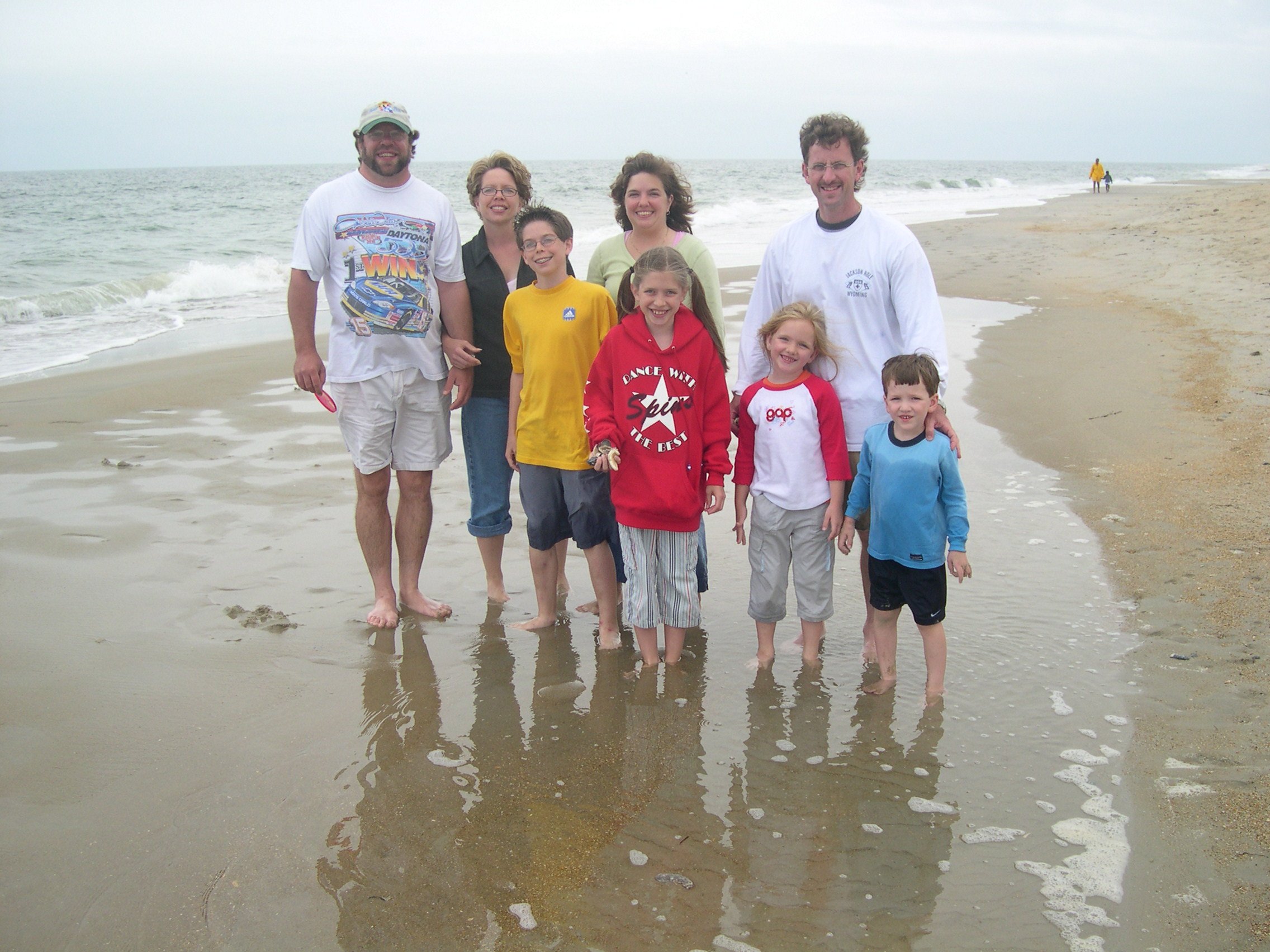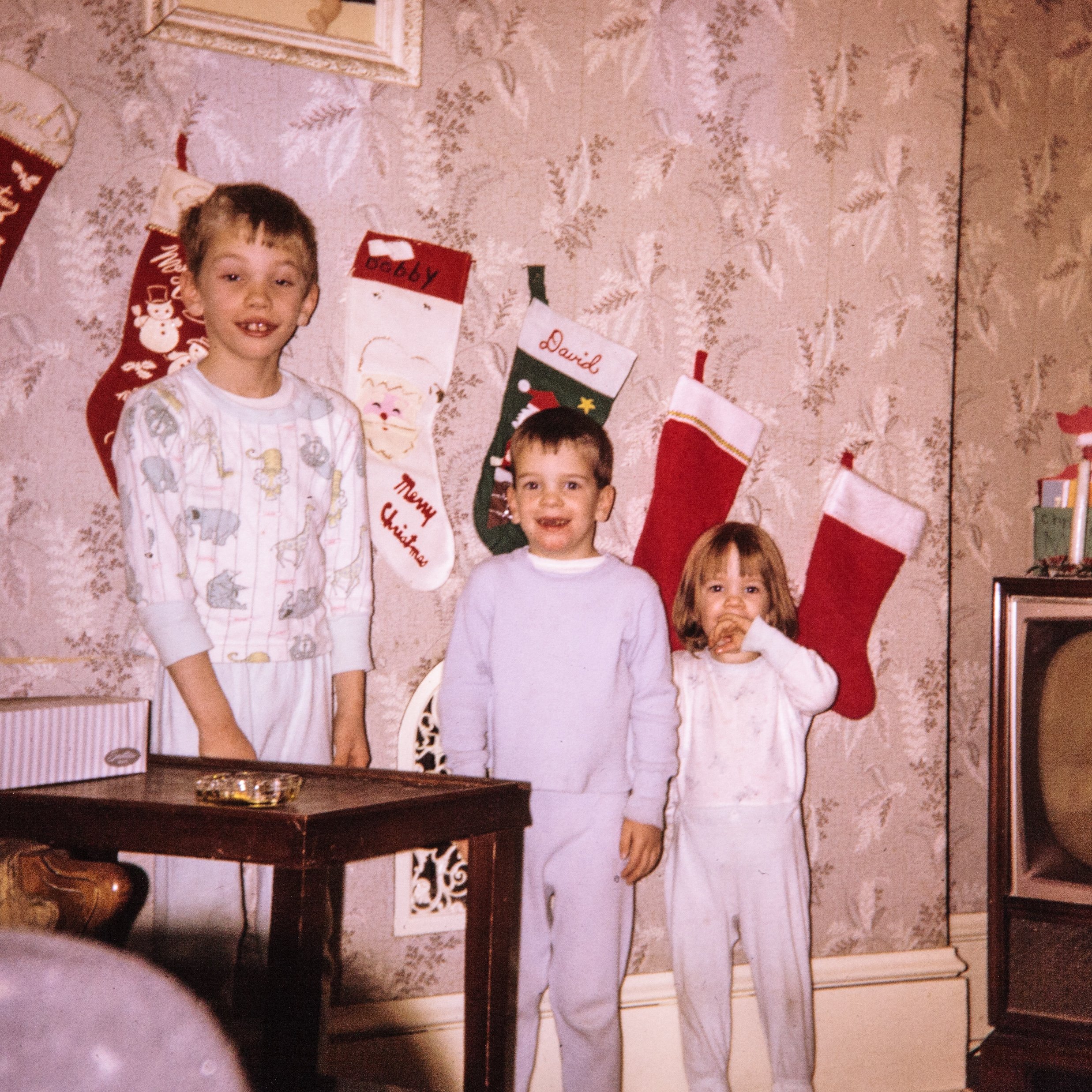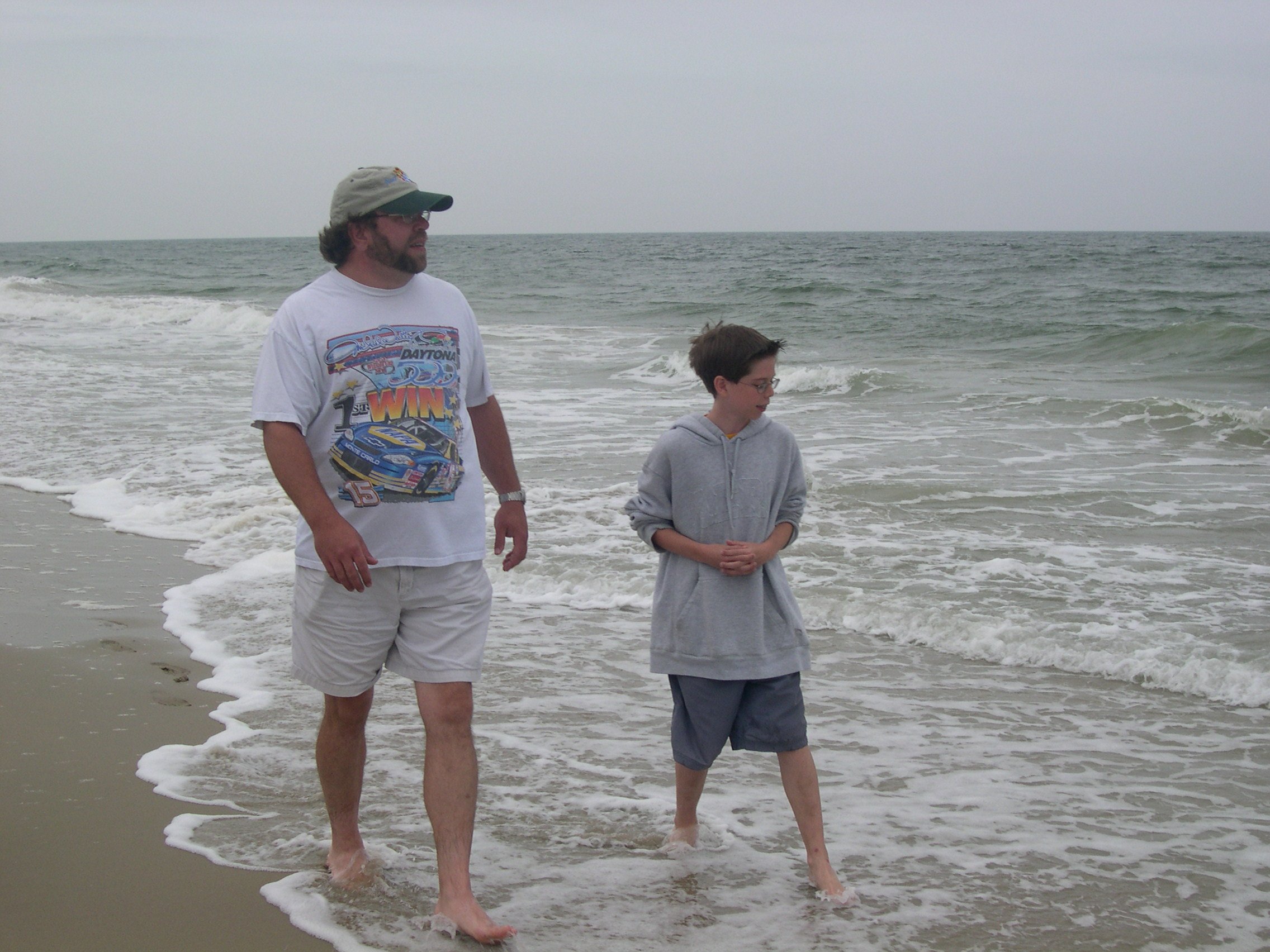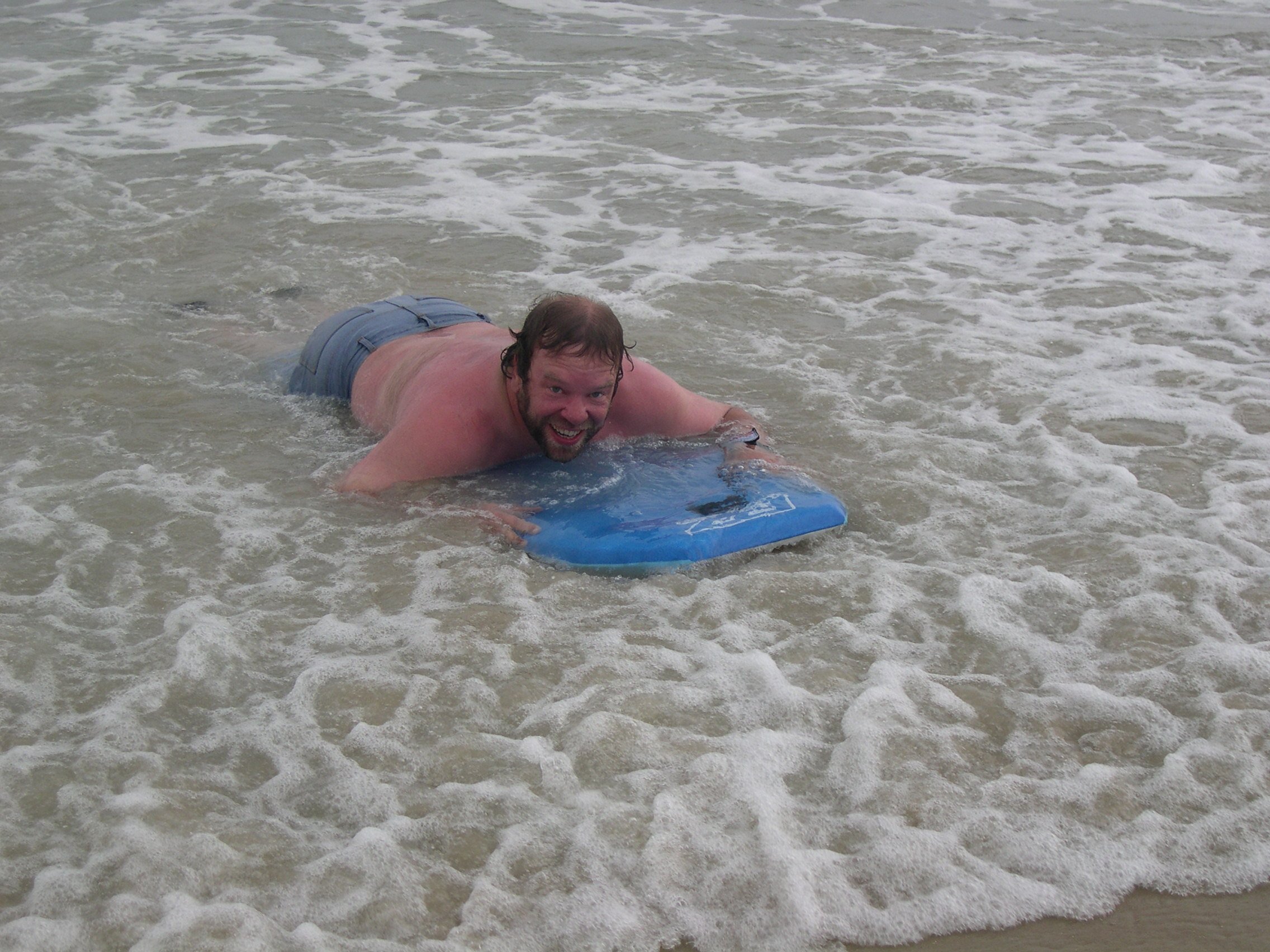Uncle David’s Story
David Singer was many things: a long time electrician, a mentor, a brother, a guitar player, a loving uncle and a dedicated son. He loved his family and friends fiercely, and cared for people with action and words. His sister (and my momma!) Lynne recalls him driving 40 minutes one time, simply to bring his mom Tylenol. His nieces and nephews always looked forward to holidays, because we knew we could count on Uncle David for a hilarious card.
In June 2022 at the age of 57, David was diagnosed with Glioblastoma. He was brought to the emergency room after family noticed that he was confused. From the ED, David went to inpatient care, and was moved to an assisted living home where he received hospice care through the end of his life. Throughout his illness, he kept his signature sense of humor, and was unwaveringly kind to every caregiver. When he was given his prognosis (less than 6 months), his immediate concern was “not upsetting Mom,” and insisting that he just needed “one more Christmas with the kids.” Sadly, he did not get to have one last Christmas. He ultimately passed just 4 months after his diagnosis, on October 14th, 2022.
WHY HOSPICE MATTERS
Prior to David’s illness, my mom had been volunteering at a local (Rochester, NY) hospice home: Comfort Care in Webster. She says it was (and is) a privilege to walk alongside people during the end of their life. Because the majority of the home is run by volunteers, people are there because they want to be there. Two volunteers are “on” at a time, and they do everything from bed changes and bathing, to sitting with grieving family, to hosting family meals, to bringing in a horse for a resident to see (yes, this happened). Working at Comfort Care really emphasized the importance of specialized caregiving, because it allows the family to just be family . When the pandemic hit in 2020, Lynne took a natural break from volunteering, as the Comfort Care home in Webster was temporarily closed.
When David got sick my mom found herself in the world of hospice care again, but this time from the family side. Lynne and my aunt Lori were trying to organize his care, though everyone was in different locations. Because of the prognosis David was given, decisions had to be made quickly. She remembers feeling like it was a scramble to try to find somewhere for to receive care that was an appropriate fit for a 57 year old. See, when David was diagnosed he initially needed very low-level care. But given the location and size of his glioblastoma, he was going to need increasing amounts of help in likely a short period of time. Ultimately, the best option was for David to move into an assisted living community in York, PA with the understanding that an outside hospice organization would come in to provide more support when it was time.
David enjoyed the assisted living home at first, though he quickly began to require more care than they were set up to provide. Hospice stepped in, at first to just advise staff and provide guidance on how to keep David most comfortable. As David’s cancer progressed, there was a lot of disagreement between staff. Hospice would recommend one thing, and the assisted living staff would decide that it was “too much” or “not necessary.” Decisions were being made that did not prioritize palliative care because the assisted living home is not educated / specialized in end of life care. Hospice staff stepped in to advocate for David’s right to comfort and dignity in death. When there was confusing communication between the family and the assisted living home, hospice stepped in to deal with the policy headaches, logistics, and medical side of things. They allowed David’s sisters and mom to just be family.
Navigating the hoops that came from working with an outside hospice agency trying to work in the confines of an assisted living home made it abundantly clear how special a program like Webster Comfort Care is:
The home is run entirely on donations, with NO COST to residents or their families. It is staffed almost entirely by volunteers, so everyone who is there WANTS to be there. The volunteers want to keep the residents comfortable, and if that means making a Manhattan every night, or having someone bring in therapy cats, or sitting in a room just holding someone’s hand for hours: they do it. There isn’t a time crunch, or 50 other residents, or pressure to be busy. Comfort Care volunteers are there to serve the hospice residents and family, full stop.
For Uncle David’s birthday, we would love to honor him by raising funds for Comfort Care. While it is not the hospice that cared for him in the last weeks of his life, we wish a program like this had been available near David’s hometown. We have linked to their website below, where you can donate, view their wishlist, and learn more about the home.





